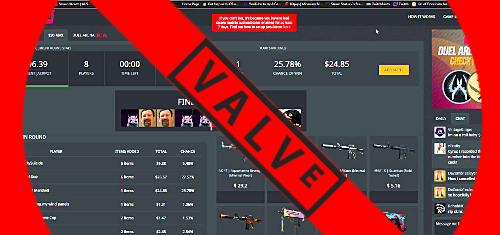 eSports game developer Valve Corporation says it will no longer permit third-party gambling sites to make use of its Steam marketplace.
eSports game developer Valve Corporation says it will no longer permit third-party gambling sites to make use of its Steam marketplace.
In a notice posted to the Steam site on Wednesday, Valve’s Erik Johnson wrote that using the eSports marketplace “to run a gambling business is not allowed by our API nor our user agreements.”
Johnson said Valve, the developers behind games like CounterStrike; Global Offensive (CS:GO) would “start sending notices to these sites requesting they cease operations through Steam, and further pursue the matter as necessary.” Johnson warned players to “consider this information as they manage their in-game item inventory and trade activity.”
Johnson stressed that Valve had “no business relationship” with these third-party gambling sites and had “never received any revenue from them.” Johnson noted that Steam “does not have a system for turning in-game items into real-world currency.”
That last part is true, but real-world currency does flow into the system, and Valve takes a cut of the sales of virtual items sold via Steam, making it an important contributor to Valve’s bottom line.
Valve was hit with a class action lawsuit last month by a player who accused the company of facilitating the growth of “illegal internet gambling enterprises” such as skin betting sites, in which players bet on the outcome of eSports matches using virtual in-game goods as currency.
Other sites take skin betting to its logical conclusion, allowing players to gamble real money on the random content of skin ‘loot crates’. One of these sites, CS:GO Lotto, was recently embroiled in scandal after it was revealed that two popular eSports players who shilled for the site in YouTube videos actually owned CS:GO Lotto. The pair have since been added to the class action lawsuit against Valve.
There are obvious parallels between Valve’s situation and daily fantasy sports operators. Both were happily reaping the benefits – albeit indirectly, in Valve’s case – of a gambling activity of questionable legality until a scandal broke. It remains to be seen whether Valve’s attempt at damage control will offer it any protection from opportunistic politicians, who are probably cranking up their outrage machines as we speak.





